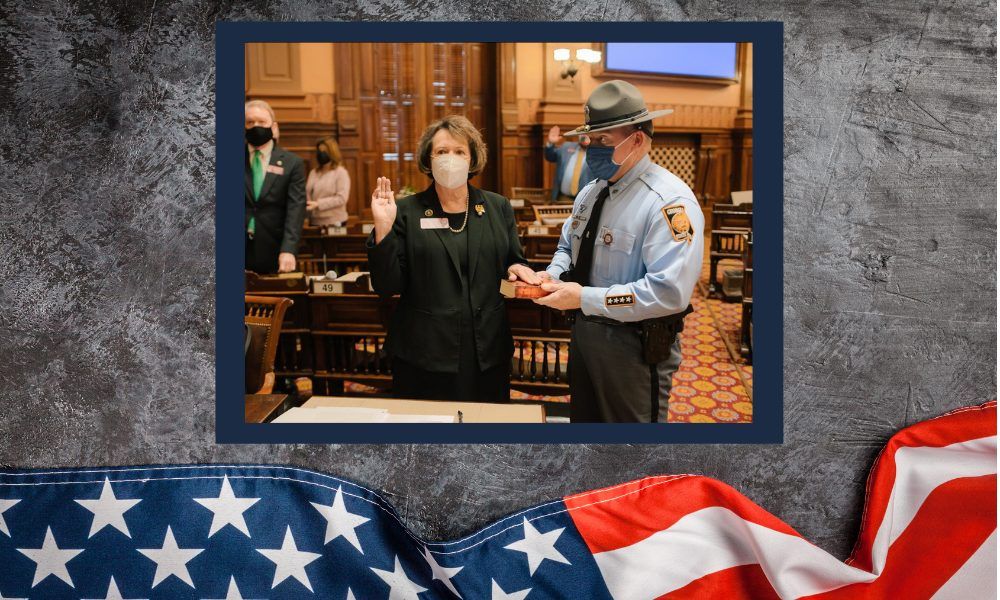State Rep. Jan Tankersley represents House District 160, covering a major portion of Bulloch County and all of North Bryan County. She and her husband, Hughie, live in Brooklet.
| Week Two Budget Week Tuesday, January 19, marked the beginning of what we refer to as, “budget week.” The only thing that we are constitutionally required to do during our 40-day session is pass a balanced budget. While balancing a budget seems simple enough, when dealing with billions of dollars, it can be quite challenging. While many states find themselves under stressful budget cuts, our fiscal conservatism and implemented cuts made during 2020 has made it possible for us to stay on par with pre-pandemic budget allocations. Over the last week, House and Senate Appropriations Committees held a series of joint budget hearings, which gave us the chance to closely examine Governor Kemp’s recommendations. As our state’s fiscal year begins July 1, we are in the first stages of crafting two budget bills:The full 2022 Fiscal Year budget and the 2021 Amended Fiscal Year budget. |
| 2021 Amended Fiscal Year Budget The 2021 budget will be amended to reflect a more accurate estimate of state revenue and accounts for discrepancies between the projected estimate that was passed last year, and actual revenue obtained. Governor Kemp began the week by presenting his recommendations to the House and Senate Appropriations Committees. Highlighted below are a few spending changes Governor Kemp is proposing for the 2021 amended budget, which will end June 30 of this year: $647 million to fully fund enrollment growth in public K-12 education regardless of reductions for enrollment due to COVID-19.$200 million increase for the Georgia Department of Transportation for roadways$20 million for OneGeorgia Authority to expand Rural Broadband.$1.7 million for the Georgia Agricultural Exposition Authority to mitigate the operational impact of COVID-19. 2022 Fiscal Year Budget In his State of the State Address last week, Governor Kemp announced that the 2022 fiscal year budget proposal is set for an estimated $27.2 billion. The governor listed his funding recommendations, and as expected, education and healthcare remain at the forefront of budget funding, receiving approximately 74% of the state’s overall budget. Public safety, transportation and general government round out the top spends collectively taking most of the remaining budget allocations. Below is a highlight of Governor Kemp’s 2022 FY budget proposals: Education $567 million to restore the Quality Basic Education (QBE) program. $9 million to restore various programs directly supporting K-12 instruction. $143.5 million to cover student enrollment growth and adjustment to teachers’ salaries through the Quality Basic Education. $71 million for the equalization program; provides funds to districts with low property wealth. $6 million for technical education enrollment growth. $36 million for the State Charter Schools. Healthcare $239 million for Medicaid and PeachCare $76 million to implement the Patients First Act, to identify innovative health insurance coverage for low-income Georgians. $1.9 million to add slots for the New Options Waiver (NOW) and Comprehensive Supports Waiver Program (COMP) for individuals with intellectual and developmental disabilities. Public Safety $15.6 million in bond funds for safety and security enhancements. $3.1 million to support trooper school. $270,320 to expand the GBI Gang Taskforce. $700,000 for grants to local domestic violence shelters and sexual assault centers. Rural Initiatives $40 million for the OneGeorgia Authority to establish a Rural Innovation Fund, which would offer resources for public-private partnerships tailored to meet the specific needs of every rural community. $30 million to continue building high-speed broadband connectivity in rural areas. Transportation $200 million allocated to the GA Department of Transportation $100 million to repair and replace bridges. $10 million to upgrade our more than 1,000 miles of short-line rail. What’s Next? Although budget week has technically come to an end, our work is far from over. House Appropriation subcommittees will further study budget proposals, eventually passing portions of the suggested budget out of their respective committees. Following this process, those individually passed budgets will then go before the full House Appropriations Committee. Soon after, the budget will receive a full vote on the House floor. When passed by the House, it then moves over to the Senate, where the process begins all over again. During Senate budget hearings, they will either approve or change House recommendations. When both Chambers agree on the budget, it goes to the Governor’s desk for his approval and signature. I will keep you updated on anything specific to our region. |









